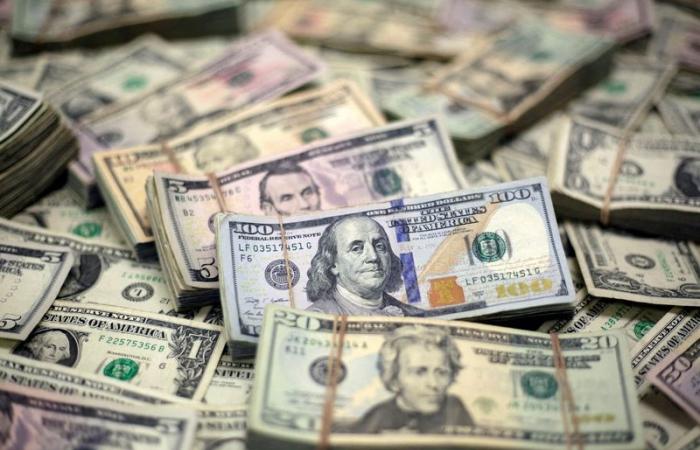The U.S. dollar rose against other currencies on Tuesday after Federal Reserve Chairman Jerome Powell pushed back overnight bets on deeper interest rate cuts.
The euro traded near its lowest level in a week as German inflation fell to its lowest level since the start of 2021, spurring speculation of a further cut interest rates this month.
The yen has stabilized near the middle of its range against the dollar over the past month, following two days of volatility as traders assessed Japan’s new prime minister and his cabinet.
The Australian dollar regained its breath after hitting its highest level since February last year on Monday, supported by stimulus measures from the country’s main trading partner China.
Fed Chairman Powell struck a more hawkish tone in a speech at a conference in Tennessee, saying the U.S. central bank would likely stick with rate cuts interest of a quarter of a percentage point in the future. “This is not a committee that feels like it’s in a hurry to cut rates quickly,” he said.
Traders remain confident that the Fed will cut interest rates again at the upcoming November meeting, but they have cut their forecast for a cut by 50 basis points (bps) to 35.4%, from 53.3%. the day before, according to the CME Group’s FedWatch tool.
The Fed began its easing cycle with a larger-than-expected half-point cut last month.
Mr Powell’s speech comes ahead of a busy week of US data, including the Institute for Supply Management’s manufacturing index later on Tuesday and the non-manufacturing report on Thursday, followed by potentially crucial monthly employment figures on Friday.
“Mr. Powell said the speed at which the Fed cuts rates will depend on the data, so he is not ruling out the possibility of another 50 basis point cut in the future,” Ray said Attrill, head of foreign exchange strategy at National Australia Bank.
“Friday’s jobs numbers could prove decisive in the direction the Fed takes.”
The dollar index added 0.07% to 100.85 by 0055 GMT, after pushing 0.3% higher on Monday.
It rose 0.23% to 143.95 yen, after fluctuating between 146.495 yen on Friday and 141.65 yen on Monday.
Shigeru Ishiba, expected to be confirmed as Japan’s new prime minister later on Tuesday, is seen by markets as a monetary policy hawk, despite a recent softening of rhetoric on the need for monetary policy normalization. policy.
He won his party’s leadership vote on Friday, in one of the closest races ever, and is now trying to unify the party after calling a snap general election for October 27.
The euro remained stable at $1.1132, after falling as low as $1.1113 during the previous session.
Data on Monday showed that inflation in Germany slowed more than expected in September to its lowest rate since February 2021. Inflation also slowed in Italy.
European Central Bank President Christine Lagarde told parliament that “the latest developments reinforce our confidence that inflation will return to target in due time” and that this should be reflected in the policy decision of the October 17.
The Aussie was little changed at $0.6914, after rising as high as $0.69435 on Monday.
Over the weekend, China’s central bank ordered lenders to cut mortgage rates by the end of October. A series of megacities such as Guangzhou, Shanghai and Shenzhen have also dramatically eased restrictions on home purchases.
The yuan fell to 7.0116 per dollar in offshore trading on Tuesday, after falling about 0.36% overnight on expectations of further monetary easing.
China begins the Golden Week holiday from Tuesday, when land-based financial markets will be closed.






